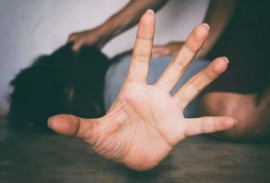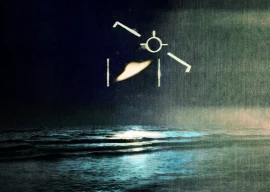
The apex court has tasked the National Database and Registration Authority (NADRA) chief to find the whereabouts of the two girls who were allegedly murdered by their elders in the name of honour after their video shot at a wedding ceremony in Kohistan went viral four years ago.
According to details, there were a total of five girls, but only two’s task was handed over to the NADRA chief because their identity cards were made and it would be easier to locate them.
Bifurcating Kohistan: Elders demand referendum
The case had made headlines back then after a shaky video of the girls singing as two men danced went viral with reports that they were subsequently killed under the instructions of a Jirga.
On June 4, 2012, the then Chief Justice of Pakistan (CJP) Iftikhar Chaudhry took suo motu notice of the alleged killing. However, the former CJP disposed of the case on June 20, 2012 when a delegation visited the Kohistan village and found no evidence of the murder.
The case was reopened in August 2016 when Afzal Kohistani – on whose application the former CJP took suo motu notice – filed a fresh plea informing the court he had new evidence that the girls, as well as three of his brothers, were in fact murdered.
The Supreme Court on November 10 ordered a sessions judge to visit Kohistan to verify the alleged killing of five girls on the instructions of a Jirga.
After his trip, the sessions judge told the SC that there is a need for exhaustive inquiry to find out the truth.
During the hearing on Thursday, the bench observed that without the production of these girls before the bench, it will not be possible to identify them.
Justice Ejaz Afzal Khan also asked the counsel for heirs of five girls that if he says that they are alive then they must appear before the court for identification.
The counsel alleged that non-governmental organisations (NGOs) are revitalising the issue for their ulterior motives as the five girls are still alive. However, rights activist Farzana Bari, rejecting his allegation, stated that no NGO is behind this case and claimed that she is receiving threats for trying to resolve the matter.
She said that the heirs of girls also refused to conduct biometric test for identification. The bench directed NADRA to identify the two girls, who got national identity cards in 2011. “Let’s proceed step by step,” says the bench. The hearing of the case was adjourned until April 20.
Lower Kohistan division: Tribal council fails to reach consensus over dispute
Last year, Khyber Pakhtunkhwa (K-P) police in its report claimed that the girls were alive.
Later, the top court directed district and sessions judge Shoaib Khan to conduct inquiry and submit a report. The judge in his report stated that he along with DPO and senior lady police official visited the village. They strived hard to convince the elders for allowing to take pictures of the girls but they did not agree. In view of the prevailing situation, they did not take the pictures.
“I was constrained to form an opinion and belief that conventional method of inquiry of just recording the statements of the area people and girls would bring no fruitful results except repetition of the same experience already done and reported to the court,” he stated.
According to the report, the sessions judge has also sought assistance from NADRA.
The judge concluded that the two girls (Siran and Bazeega), who were produced before him, were not the same. “In the light of NADRA report, it would not be unsafe to conclude and presume that other girls produced before us were not the girls visible in the video scandal.”
Published in The Express Tribune, April 7th, 2017.

















COMMENTS (1)
Comments are moderated and generally will be posted if they are on-topic and not abusive.
For more information, please see our Comments FAQ